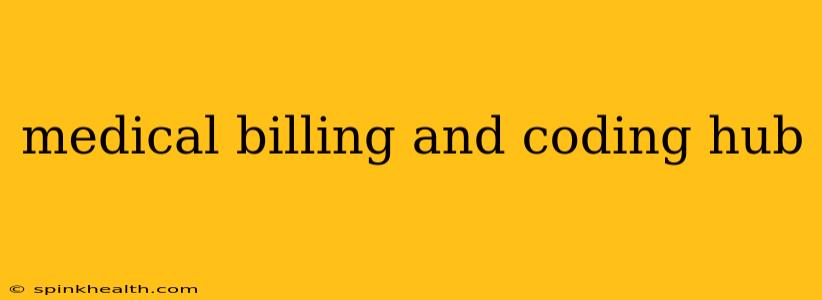The world of healthcare is complex, and at its heart lies the intricate dance of medical billing and coding. It's a crucial process, ensuring healthcare providers get paid for their services and patients receive accurate statements. But for those outside the industry, it can feel like navigating a labyrinth. This hub aims to demystify the process, offering a comprehensive guide for anyone interested in understanding, entering, or advancing in this dynamic field.
Let's start our journey into this fascinating world. Imagine this: a patient walks into a clinic, receives treatment, and leaves. But the process doesn't end there. The encounter needs to be translated into a language understood by insurance companies – a language of codes and claims. This is where medical billing and coders step in, the unsung heroes ensuring healthcare providers get reimbursed for their expertise and dedication.
What is Medical Billing?
Medical billing is the process of submitting claims to insurance companies or patients for healthcare services rendered. It's the financial backbone of healthcare, ensuring that providers receive payment for their services. Think of it as the meticulous accounting side of healthcare, making sure every service is accurately recorded and billed. This involves creating invoices, managing payments, following up on outstanding balances, and ensuring compliance with all relevant regulations. Without efficient medical billing, healthcare providers would struggle to remain financially viable.
What is Medical Coding?
Medical coding is the process of translating medical diagnoses, procedures, and services into standardized alphanumeric codes. These codes are used by insurance companies to process claims and determine reimbursement amounts. Imagine a universal language for describing every imaginable medical procedure and diagnosis – that's the power of medical coding. These codes, primarily using the ICD (International Classification of Diseases) and CPT (Current Procedural Terminology) systems, ensure clear and consistent communication between healthcare providers and payers.
What are the different types of medical codes?
There are several types of medical codes used in billing and coding, each serving a specific purpose:
- ICD-10-CM Codes: These codes classify diseases, injuries, and other health conditions. They're essential for diagnosis coding.
- CPT Codes: These codes describe medical, surgical, and diagnostic procedures performed by physicians and other healthcare professionals. They're crucial for procedure coding.
- HCPCS Level II Codes: These codes are alphanumeric codes used to identify procedures, supplies, and services not covered by CPT codes. They often include durable medical equipment (DME) or ambulance services.
How do Medical Billing and Coding Work Together?
Medical billing and coding are inseparable partners in the healthcare finance ecosystem. They work in tandem: accurate coding is the foundation for successful billing. Incorrect coding can lead to claim denials, delayed payments, and even financial penalties. A skilled coder ensures that each claim accurately reflects the services provided, maximizing the chances of timely reimbursement. The billing specialist then uses these codes to create and submit claims, manage payments, and resolve any discrepancies.
What are the educational requirements for a career in medical billing and coding?
Many people wonder how to break into this field. The good news is that you don't need a four-year degree. Many individuals enter this field through:
- Associate's Degrees: An associate's degree in medical billing and coding provides a comprehensive education, covering everything from anatomy and physiology to coding and billing procedures.
- Certificates and Diplomas: Shorter certificate and diploma programs offer focused training in specific areas like medical coding or medical billing, providing a quicker pathway to entry-level positions.
- On-the-Job Training: Some individuals gain experience through on-the-job training, often starting in an entry-level role and gradually acquiring the necessary skills.
What are the job prospects in medical billing and coding?
The job market for medical billing and coding professionals is strong and expected to continue growing. The increasing complexity of healthcare insurance and the rising demand for healthcare services create a high demand for skilled professionals in this field. The Bureau of Labor Statistics provides detailed projections for the future of this field.
What are the skills needed to excel in medical billing and coding?
Success in this field demands a blend of technical and soft skills:
- Technical Skills: Proficiency in medical coding and billing software, knowledge of ICD-10-CM, CPT, and HCPCS codes, understanding of medical terminology, and experience with electronic health records (EHR) systems.
- Soft Skills: Strong attention to detail, excellent organizational skills, accuracy in data entry, problem-solving abilities, and effective communication skills.
This hub serves as a starting point on your journey to understanding medical billing and coding. Further exploration of each topic will enhance your knowledge and equip you with the insight needed to navigate this crucial aspect of the healthcare system. This isn't just about numbers and codes; it's about ensuring healthcare providers can continue their vital work, ultimately benefiting patients worldwide.

